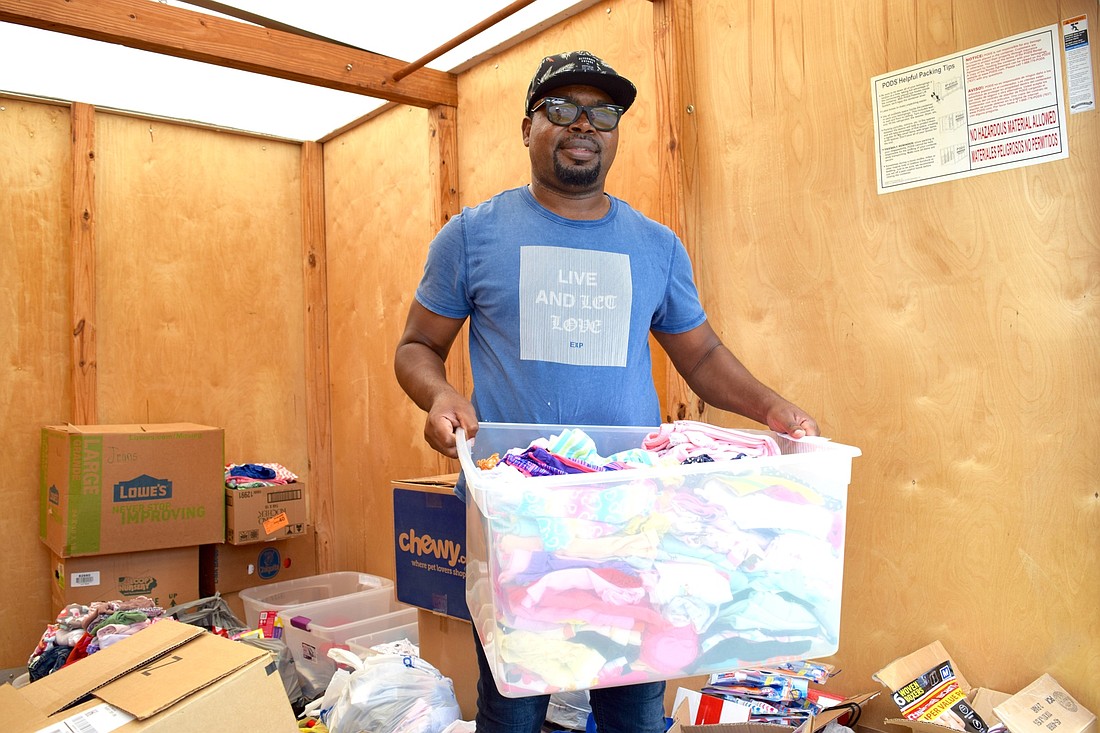- April 4, 2025
-
-
Loading

To prepare his church to help migrant families at the border between the United States and Mexico, William Karshima knew he needed to see the situation with his own eyes.
But nothing could have prepared him for the things he saw.
Karshima, lead pastor of Oasis Winter Garden, barely made it through his sermon the Sunday after he returned from McAllen, Texas.
“I was standing on stage and couldn’t contain the emotion.,” he said. “I think it’s better if you have the means to go and experience it, because it will change everything.”
“I knew the reality is there — we have children and families that are suffering, but we’re not getting the real information,” he said. “It was hard for me to prepare my church to be able to serve the people who actually need the help. I decided that, for me to give my church the truth and to make a well-informed decision, we need to know what’s going on.”
Karshima flew to McAllen the morning of July 1. He was not allowed to go into the detention center itself — this requires an invitation. However, he followed a bus of families who were released from the detention center and dropped off at a nearby bus station.
“To know the real story, you have to connect with people (who) are going through the story,” he said. “We can go and ask anybody outside of these people, and everyone can tell you what they think or their opinion or perspective, but we need to go (to) the families (who) are going through this to ask, ‘What is your experience and what do you need?’ They’re able to tell you exactly what you need to know. I went with the intention to actually meet these families themselves and hear their story. The question I was asking is, ‘What happens to them after the detention center?’”
Karshima spent time at the bus station talking to some of the families about their experience. He also met with the director of a nearby Catholic shelter, which was taking in the families and offering them showers, clothes, food and more. There, he spent time serving food and giving supplies to the families.
Although Karshima heard reports that the detention centers are clean and migrants are given whatever they need, his experience was quite the opposite. The shelter smelled of urine and body odor. Children were lying on the ground, some balled up, and he could see how sick they were. The families were cold, hungry and hadn’t showered or brushed their teeth in some time, he said.
“I couldn’t see someone coming from a very clean environment,” he said. “Coming from that place, it’s less than a five-minute drive, and these kids are coming in saying they haven’t showered or brushed their teeth for days. Some of these families told their story of sleeping on the floor. When you come into the shelter, the shelter really smells of urine. As soon as they come in the volunteers try to get them showers and give them clothes, but they’re not coming in well taken care of. People came in and said, ‘When we crossed the border, it rained on us, and we came to the detention center and our clothes dried on us.’
“It’s just really heartbreaking to see that, but then some people go on social media and say these families are taken care of,” he said. “I’m in the midst of these families, and I felt like the truth is here but nobody is willing to talk about the truth for whatever reason. It’s just really a heartbreaking situation.”
After spending the day serving the families and hearing their stories, Karshima was able to call his wife around 8 p.m. to tell her what he had seen.
“I was trying to tell her what I experienced, and whenever I tried to say something, I felt like I was living my day again,” he said. “I just started weeping and I told her, ‘I just cannot talk.’”
Karshima knows what it is like to be a refugee. A native of Nigeria, his house was burned three times, and he saw people die in front of him.
“I know what it means to run for your life but be desperately in need of help, wondering if someone would show up and care,” he said. “I told my church, ‘We need to let these families know that we care.’ We don’t know their whole story, but we know they need help, and that’s all we need to know. Right now, they need to know that we care.”
He came back to his church with a list of supplies the Catholic shelter is collecting for the migrants. This includes basic hygiene necessities, diapers and clothing of all sizes. Through July 25, Oasis is collecting donations that will be taken to the shelter July 27. The church also is sending a team of 12 that weekend to serve at the shelter again.
“The church is excited for the opportunity to be a part of these people’s stories,” he said. “People are giving; their heart is broken, but they’re so thankful they can do a little to be able to serve. Almost everybody is bringing what they can. It’s been very hard and very emotional for everybody, but again, we are so grateful that we can play a role in their story.”